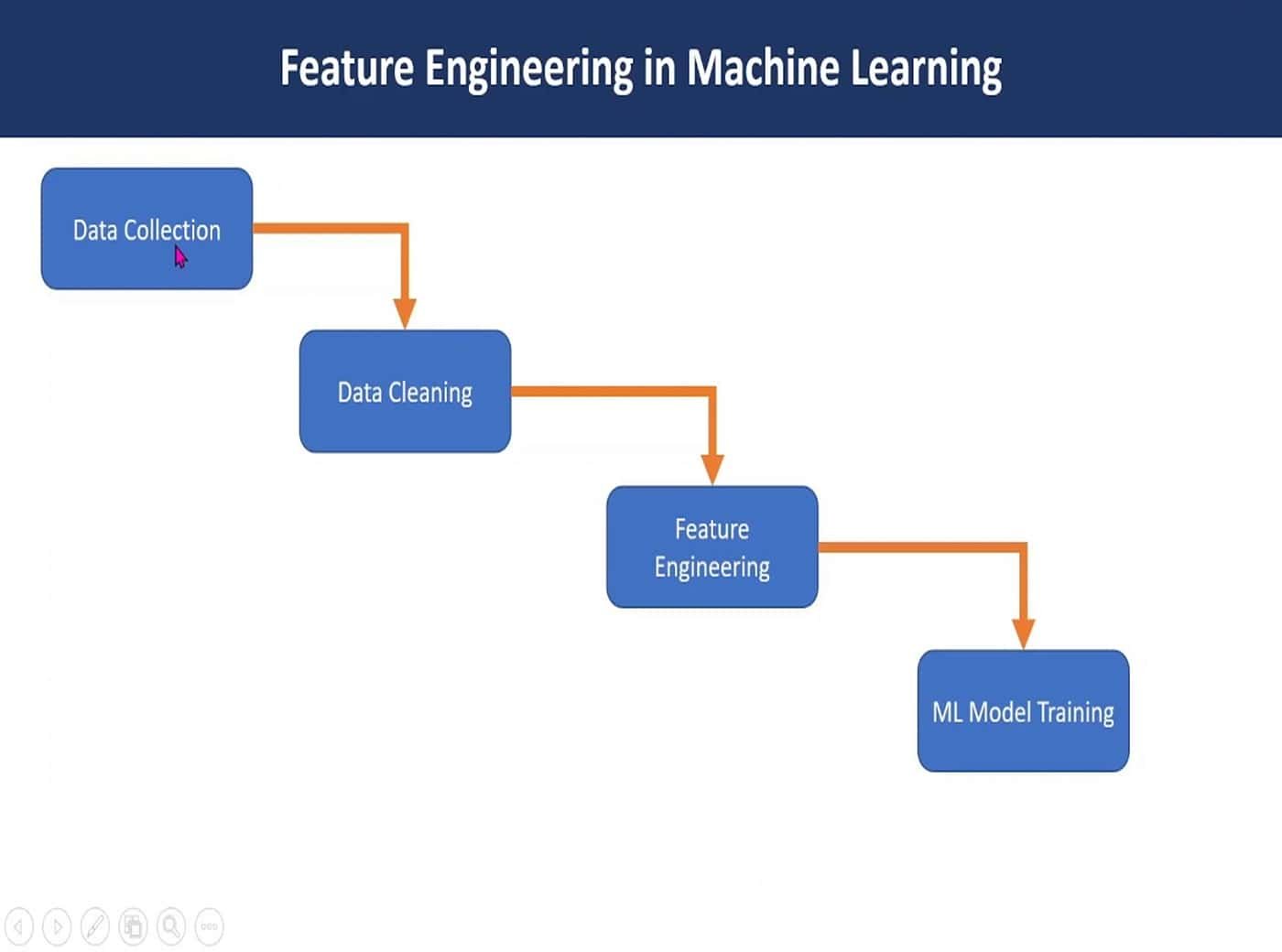Summary: The Machine Learning job market in 2024 is witnessing unprecedented growth, with a focus on India’s competitive landscape. Professionals can enhance their earning potential by acquiring in-demand skills, relevant certifications, and degrees. As the market evolves, continuous learning and adaptability are crucial for success in this dynamic field.
Introduction
As we stand on the cusp of 2024, the world of Machine Learning beckons with unprecedented opportunities. In 2024, the significance of Machine Learning (ML) cannot be overstated. It is vital to understand the salaries of Machine Learning experts in India. Why?
The Indian ML market is projected to grow by 36.11% (2024-2030) resulting in a market volume of US$17.87bn in 2030. In this scenario, understanding the salary trends for professionals in this field is paramount.
Have you ever wondered how being a Machine Learning expert could shape your financial journey? Join me on a Machine Learning expert’s salary trends in this dynamic field. Understanding the nuances of compensation is vital for professionals carving their paths in this ever-evolving landscape.
This article will unravel the intricacies of Machine Learning expert salaries in India and offer insights into invaluable resources. We will also look at the latest trends and professional certification courses, paving the way for your success.
The Current Landscape Of Machine Learning Salaries
As we delve into the current state of Machine Learning salaries. It’s crucial to grasp the dynamic landscape of the job market. According to The Hindu, the Indian job market is gearing up for a remarkable 22% transformation over the next five years.
Key contributors to this evolution are roles in AI, Machine Learning, and data segments, demonstrating the growing significance of these skills.
Factors Shaping 2024 Salaries
The demand for Machine Learning skills transcends industries, with software and IT services, finance, and healthcare emerging as the frontrunners. As we set sail into 2024, understanding these dynamics becomes a compass for navigating the evolving landscape of Machine Learning salaries.
Demand For Machine Learning Skills
In the global job arena, a notable 23% churn is anticipated, with the World Economic Forum predicting the creation of 69 million new jobs and the elimination of 83 million by 2027. Within this framework, the demand for Machine Learning skills stands out, reflecting the industry’s appetite for expertise in this domain.
Industry-specific Variations
As we navigate through 2024, we must recognise the nuanced landscape of Machine Learning salaries. An analytics firm SAS survey uncovered that 63% of decision-makers identify a significant skills shortage in AI and Machine Learning. Understanding how these shortages manifest in specific industries will be crucial for professionals aiming to maximise their earning potential.
Geographic Considerations
Geography plays a pivotal role in shaping salary trends. The SAS survey reveals that 75% of decision-makers address the skills gap through training and upskilling initiatives. This emphasises the importance of considering regional dynamics when assessing Machine Learning salary expectations.
The Machine Learning job market is experiencing unprecedented growth, with job postings surging by over 300% in the past five years. This trajectory aligns with the findings of a LinkedIn report, ranking Machine Learning engineer as the fastest-growing job in the US in 2019.
Projected Salary Trends For 2024
The job market in 2024 is expected to see moderate salary increases, with some industries like e-commerce and finance leading the pack. India is projected to have the highest average raise globally, with a focus on retaining talent. Overall, companies are balancing cost management with attracting and keeping skilled employees.
Data-driven Projections
Embracing the current trends in Machine Learning, the landscape is marked by the ascendancy of Deep Learning and the development of sophisticated algorithms. These advancements empower professionals to make more accurate predictions and decisions.
The market is witnessing a notable surge in applications across diverse sectors, including healthcare, finance, and retail.
Additionally, the proliferation of cloud-based Machine Learning services and the growing adoption by Small and Medium-Sized Enterprises (SMEs) are shaping the trajectory of salary projections.
Emerging Roles And Their Impact
As Machine Learning takes centre stage, new roles emerge, each leaving a distinct mark on salary structures. Integrating Machine Learning with cutting-edge technologies like Natural Language Processing and computer vision opens avenues for professionals to explore. This synergy not only enhances their skill sets but also creates unprecedented opportunities for career growth.
Industry Sectors With The Highest Salary Growth
Specific industry sectors are poised for remarkable salary growth in 2024. The healthcare, finance, and retail industries are particularly prominent, driven by the increasing demand for Machine Learning expertise.
The expanding Internet of Things (IoT) and the surge in edge computing contribute to the growth by generating vast datasets that necessitate skilled professionals for analysis.
The Machine Learning market presents promising prospects in anticipation of a forecasted compound annual growth rate (CAGR) of over 18.7% from 2023 to 2030.
However, challenges such as the scarcity of skilled talent and data privacy concerns beckon attention. Navigating these projections requires a proactive approach, continuous learning, and adaptability to stay ahead in this dynamic field.
Influencing Factors Behind Salary Trends
The demand for skilled machine learning professionals continues to drive salaries upwards. However, several factors influence individual salaries, including experience, education, location, and specific skills. Let’s explore these factors in more detail.
Impact of AI Breakthroughs
Artificial Intelligence (AI) ‘s relentless march continues redefining professional landscapes. As we sail into 2024, the impact of groundbreaking AI breakthroughs on the demand for skilled Machine Learning practitioners is palpable. Companies increasingly leverage AI innovations to streamline processes, creating a surge in demand for professionals well-versed in these cutting-edge technologies.
Evolution Of Machine Learning Frameworks
The very frameworks upon which Machine Learning thrives are undergoing a transformative evolution. From TensorFlow to PyTorch, the choices available to practitioners are expanding. Understanding and mastering these frameworks enhances proficiency and contributes significantly to negotiating power in the competitive job market.
Relevant Certifications And Degrees
As industries seek to harness the power of Machine Learning, possessing the proper certifications and degrees becomes a compass guiding professionals to higher salary shores. Acquiring qualifications aligned with industry needs validates expertise and signals to employers a commitment to staying ahead in this dynamic field.
In this context, the free Machine Learning course by Pickl.AI, a reputed platform offering professional certification courses, stands out as the best choice. This course imparts essential knowledge and aligns with industry standards, making it a beacon for those seeking higher salaries in the Machine Learning domain.
In-demand Skills For Higher Salaries
Acquiring additional skills like Natural Language Processing, computer vision, and Deep Learning can enhance your profile, and also ensures a better pay.
Frequently Asked Questions
What Are The Key Factors Influencing Machine Learning Experts’ Salaries In India?
Machine Learning experts’ salaries in India are influenced by factors such as demand-supply dynamics, industry-specific variations, and geographic considerations.
How Can Professionals Enhance Their Earning Potential In The Machine Learning Job Market In 2024?
To maximise earning potential, professionals should focus on acquiring in-demand skills like Natural Language Processing and Deep Learning, alongside obtaining relevant certifications and degrees aligned with industry needs.
What Is The Average Salary Range For Machine Learning Engineers?
Machine Learning Engineers earn between ₹ 3.0 Lakhs to ₹ 22.0 Lakhs with an average annual salary of ₹ 10.1 Lakhs
Summing up
To sum up, navigating the dynamic landscape of Machine Learning experts’ salaries in 2024. It involves understanding the global demand, industry-specific variations, and the impact of technological advancements.
As the Machine Learning market continues to surge, staying updated on emerging roles, acquiring relevant skills, and exploring educational opportunities remain vital for success in the ML job market, both in India and globally.
You can begin your journey to success in the dynamic world of Machine Learning with Pickl.AI’s ML 101 – Introduction to Machine Learning. Elevate your skills and gain a competitive edge with our free Machine Learning certification course. Whether you’re a seasoned professional or just starting, this course is your gateway to mastering core concepts.
Level up your expertise by enrolling in this uniquely designed course that introduces Machine Learning fundamentals intuitively. Our aim is to build a robust foundation in core Machine Learning concepts and offer hands-on experience in Exploratory Data Analysis and Feature Engineering.
Pickl.AI is your compass to higher salaries and a thriving career in Machine Learning. Explore our professional certification courses and set sail towards a brighter future today!





I don’t think the title of your article matches the content lol. Just kidding, mainly because I had some doubts after reading the article.